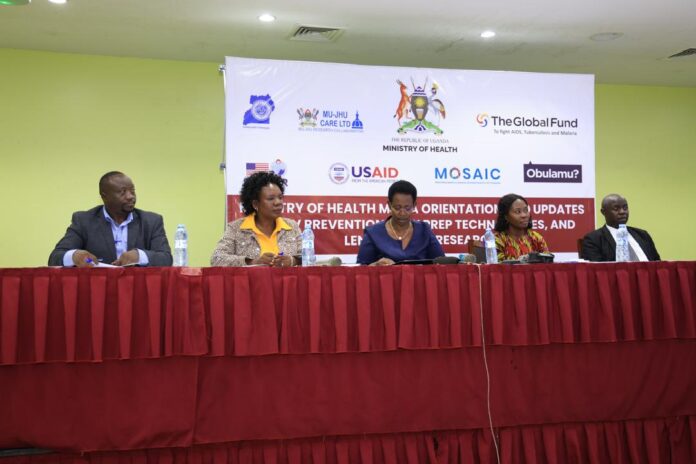
Dr. Flavia Matovu, the director of research at Makerere University, has emphasized the need for immediate action to make Lenacapavir available to those in need, citing the alarming rate of HIV infections among young women.
Dr. Matovu said this on August 22, 2024, at the Ministry of Health media orientation to update the fourth estate on New PreP technologies and Lenacapavir Research—HIV Prevention Methods in Uganda.
Recently, Ugandan researchers discovered that Lenacapavir, an injectable drug, is 100% effective in preventing HIV in young women aged 16 to 25.
This discovery, which took place as part of the Purpose One study led by Dr. Matovu, offers new hope in the fight against the HIV epidemic.
The Purpose One study, conducted at 25 sites in South Africa and three in Uganda between August 2021 and May 2024, involved 5,345 adolescent girls and young women.
The results, which were presented at the 25th International AIDS Conference in July 2024, demonstrated the safety and efficacy of Lenacapavir, a long-acting injectable antiretroviral drug, for Pre-exposure Prophylaxis (PrEP) in HIV-negative cisgender women.
Remarkably, there were zero new infections among the 2,138 participants who received lenacapavir injections every six months.
Dr. Matovu revealed that the drug manufacturer, Gilead Sciences, Inc., committed to licensing generic manufacturers to substantially reduce the price for resource-limited settings like Uganda, where we depend on donors.
”This will allow us to provide Lenacapavir to our young girls, who are at higher risk,” she stated.
On the other hand, Permanent Secretary of the Ministry of Health, Dr. Diana Atwiine, announced the country’s commitment to introducing new pre-exposure prophylaxis products and called upon the journalists to use their expertise to sensitize the communities on HIV prevention with an emphasis on behavioral change.














